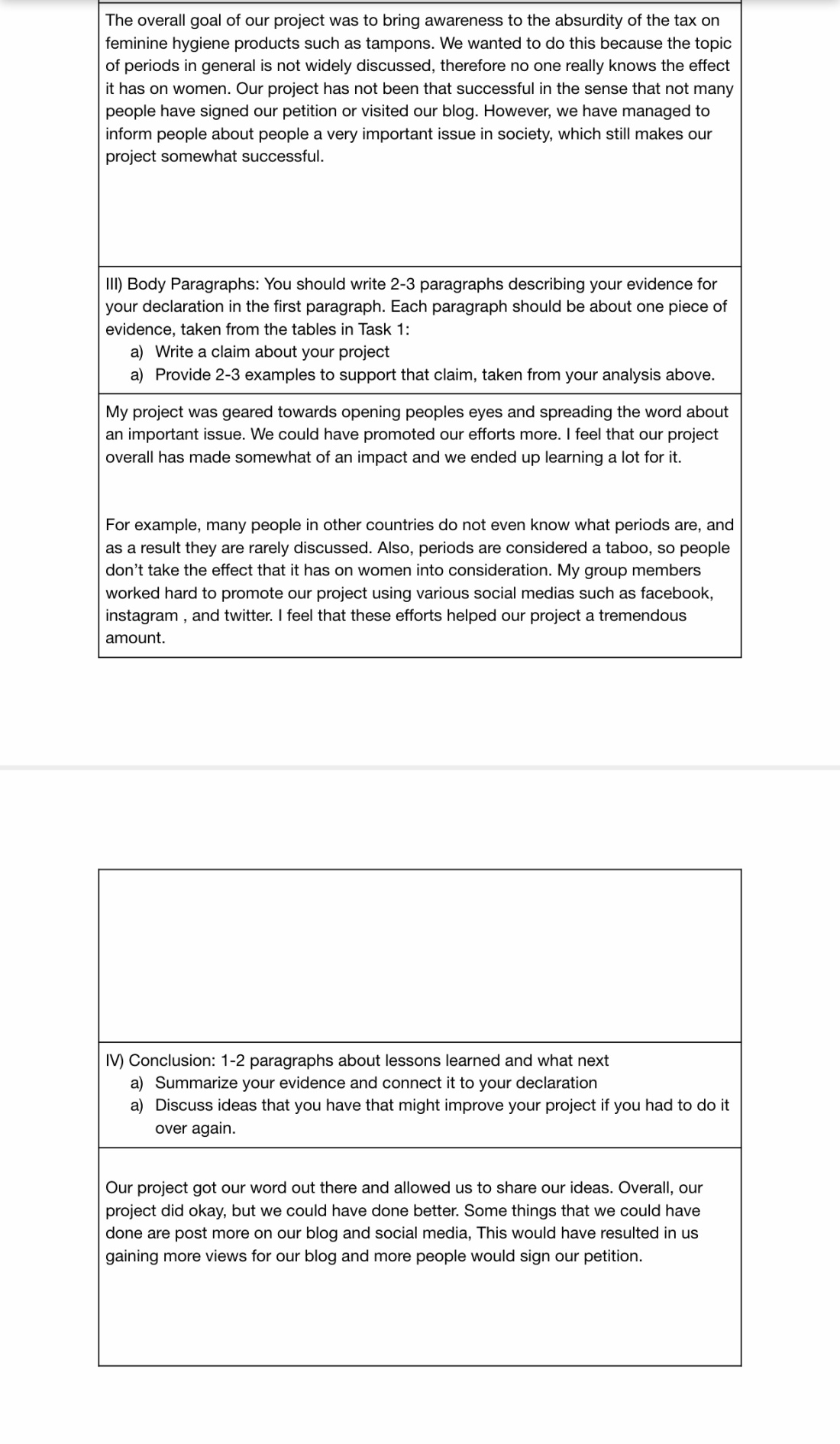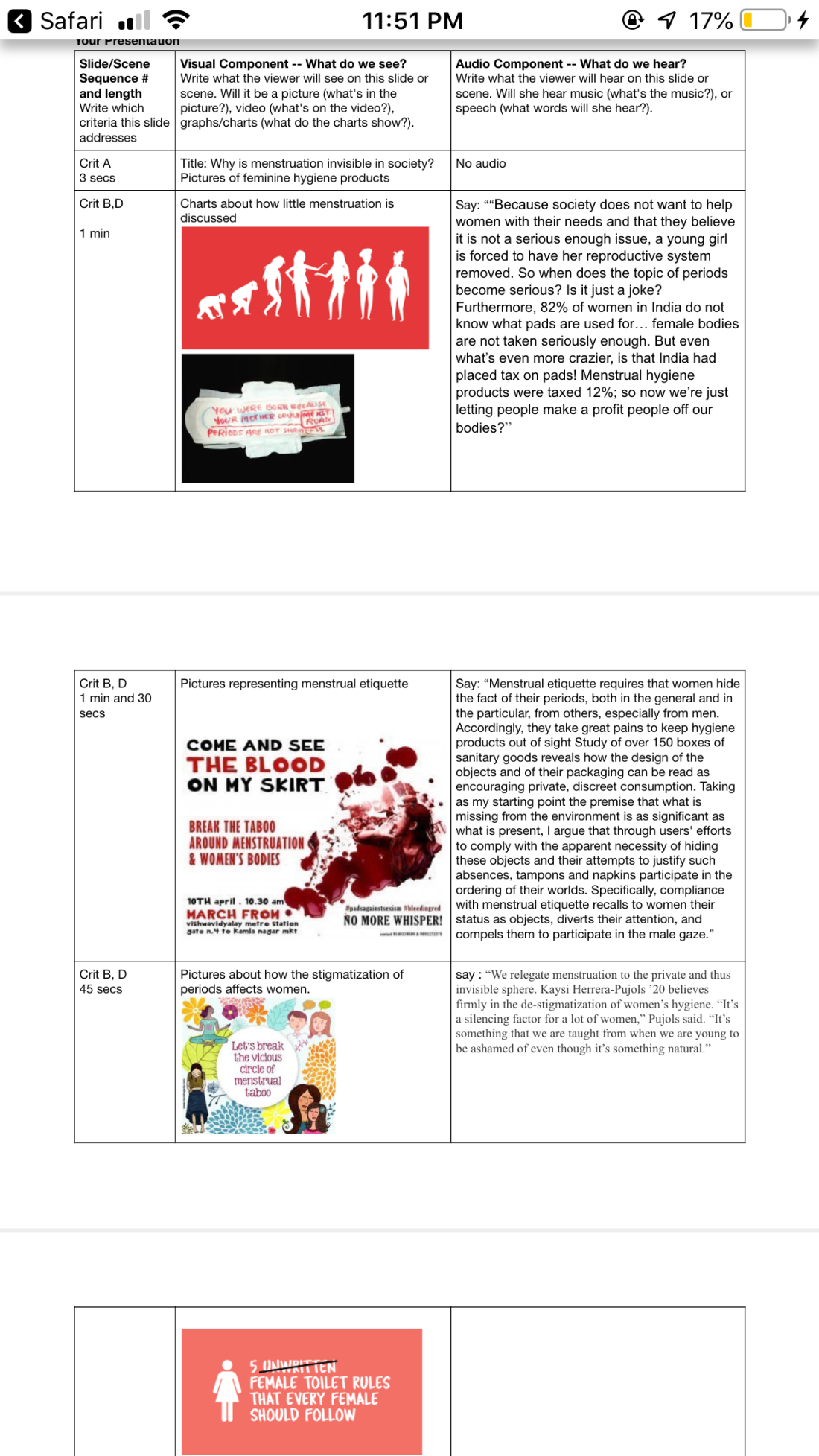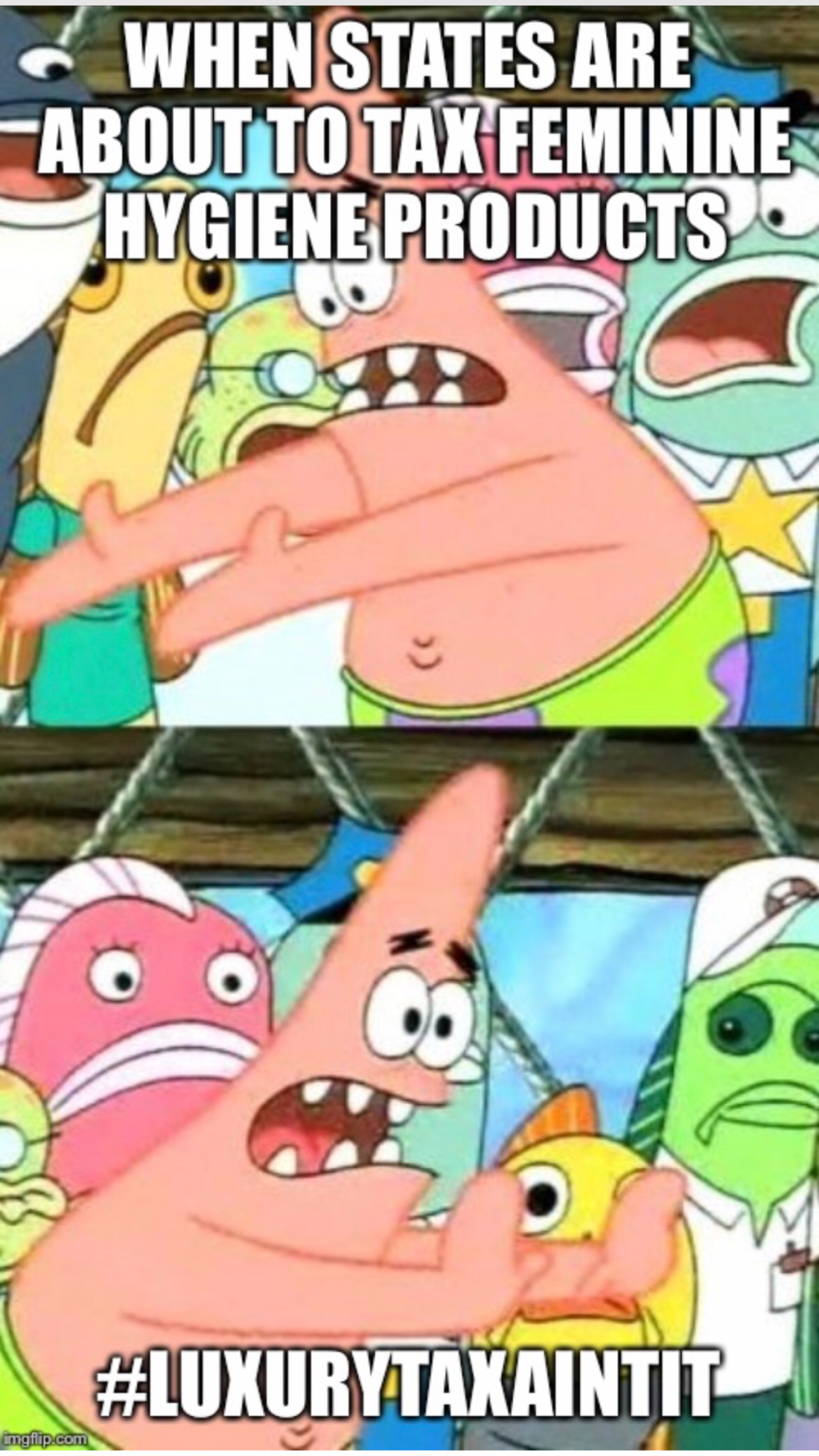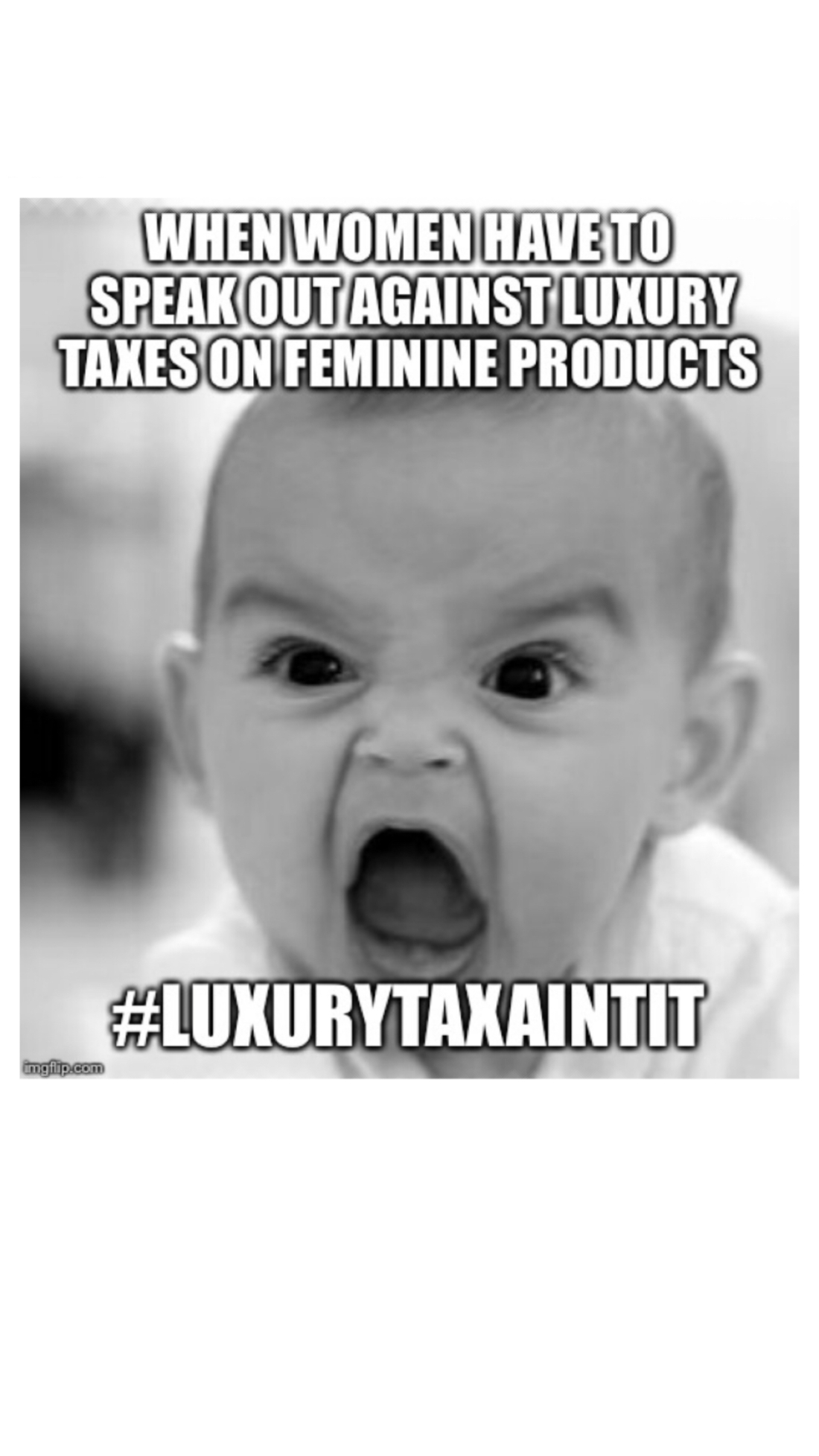Listed down below is a reflection of our tampon tax project. We could have improved in some areas, but overall we made an effort and attempted to spread our message.

The absurdity of luxury tax on menstrual products.
Listed down below is a reflection of our tampon tax project. We could have improved in some areas, but overall we made an effort and attempted to spread our message.

Hello everyone. I would like to thank all of you for your support in furthering our efforts against the tampon tax. Our blog is doing okay in terms of views, but it could be better. If you can please share this post and help us get our views up. Thank you.
My video is about the tax on tampons and how it is caused by other factors related to menstruation. It discusses topics such as menstrual etiquette, how menstruation isn’t discussed in society, and how there is a taboo on periods.
I created this presentation to bring to light the issue of the tampon tax, how it impacts women and society, and how it is rarely discussed. In society, tampons are considered a luxury item and are taxed. However, tampons are not a luxury, as it is a necessity. Part of the reason why tampons are taxed is because they are not widely discussed throughout people in society. Therefore, people view them as a taboo, and treat them like any regular item.
I think that my presentation will serve the purpose of education others about tampons and how they affect women. This will cause them to be more discussed throughout socity and not treated as a luxury library.
This is the research that I have gathered for my project discussing the invisibility of menstruation. It will discuss various aspects of period including how they are invisible to society and are looked at as taboo. 
This meme is referring to the fact that most states in the u.s have a tax on feminine hygiene products, which we are pushing to stop.

This meme is about the frustration and anger that many women feel because haveing a period is not luxury, so it should not be taxed as such.

https://www.bloomberg.com/graphics/2018-tampon-cost/
Please click the link above and visit this website. It provides very informational and in depth explanations of the cost of tampons and other feminine hygiene products and how it adds up over time.
The tampon tax has become a global issue due in part to people on social media trying to make menstruation an issue that is easier for everyone to talk about. A Londan woman went viral in 2015 for not using any feminine products while she ran the marathon, in an attempt to draw attention to the issue.
Only 13 of the 50 states have no tax on feminine hygiene products , and 15 states made an attempt to eliminate the tampon tax in 2016 alone. According to bbcnews.com, “The average woman menstruates from the ages of 12 to 50 and tampons in the US cost roughly $7 (£5.30) for a box of 36. New York officials estimate that by exempting feminine hygiene products from its sales tax, consumers save about $10m (£7.5m) a year in purchasing tampons, pads and other similar products.” Many other countries such as Canada, Britain, Ireland, Spain, and the Netherlands have fought to end the tampon tax.
According to the Washington Post, “most states tax all “tangible personal property” but make exemptions for select “necessities” (non-luxury items). Things that are considered necessities usually include groceries, food stamp purchases, medical purchases (prescriptions, prosthetics, some over-the-counter drugs), clothes (in some states), and agriculture supplies.” This means that women are being taxed for the simple fact that they are women. This is gender injustice and should be fixed.
Hi my name is Jada and I am starting this campaign to ensure that there is no luxury taxes on feminine products such as pads and tampons.